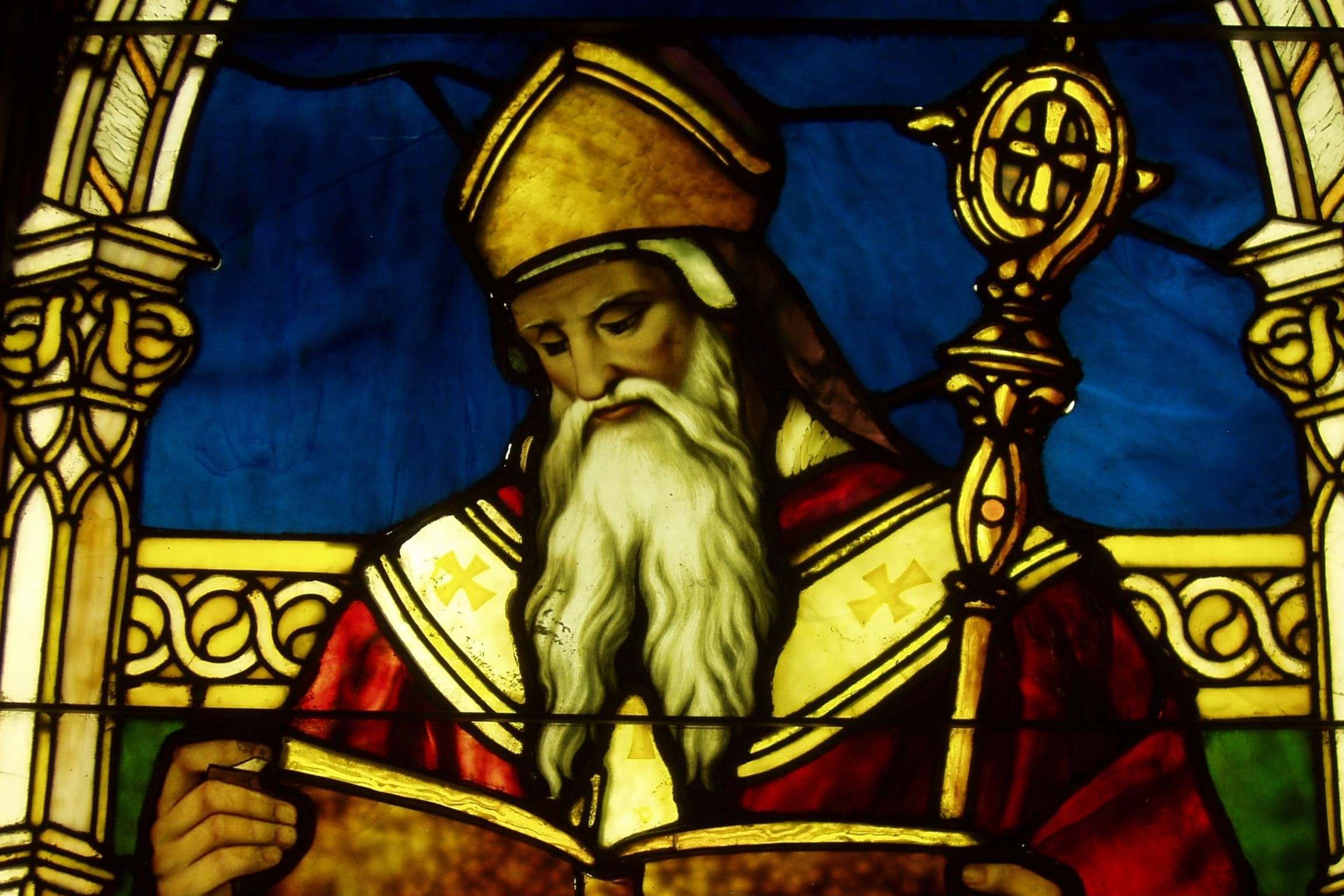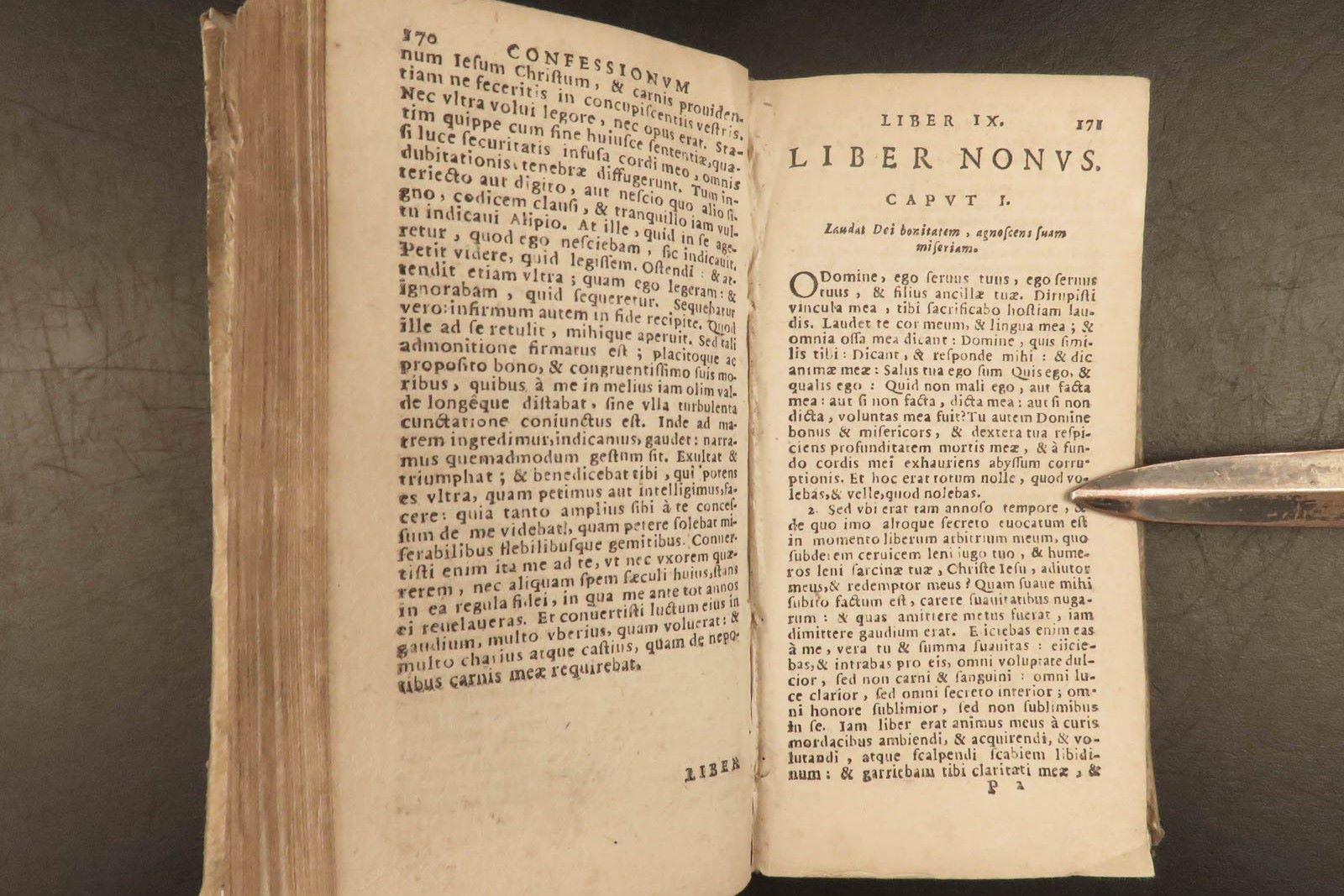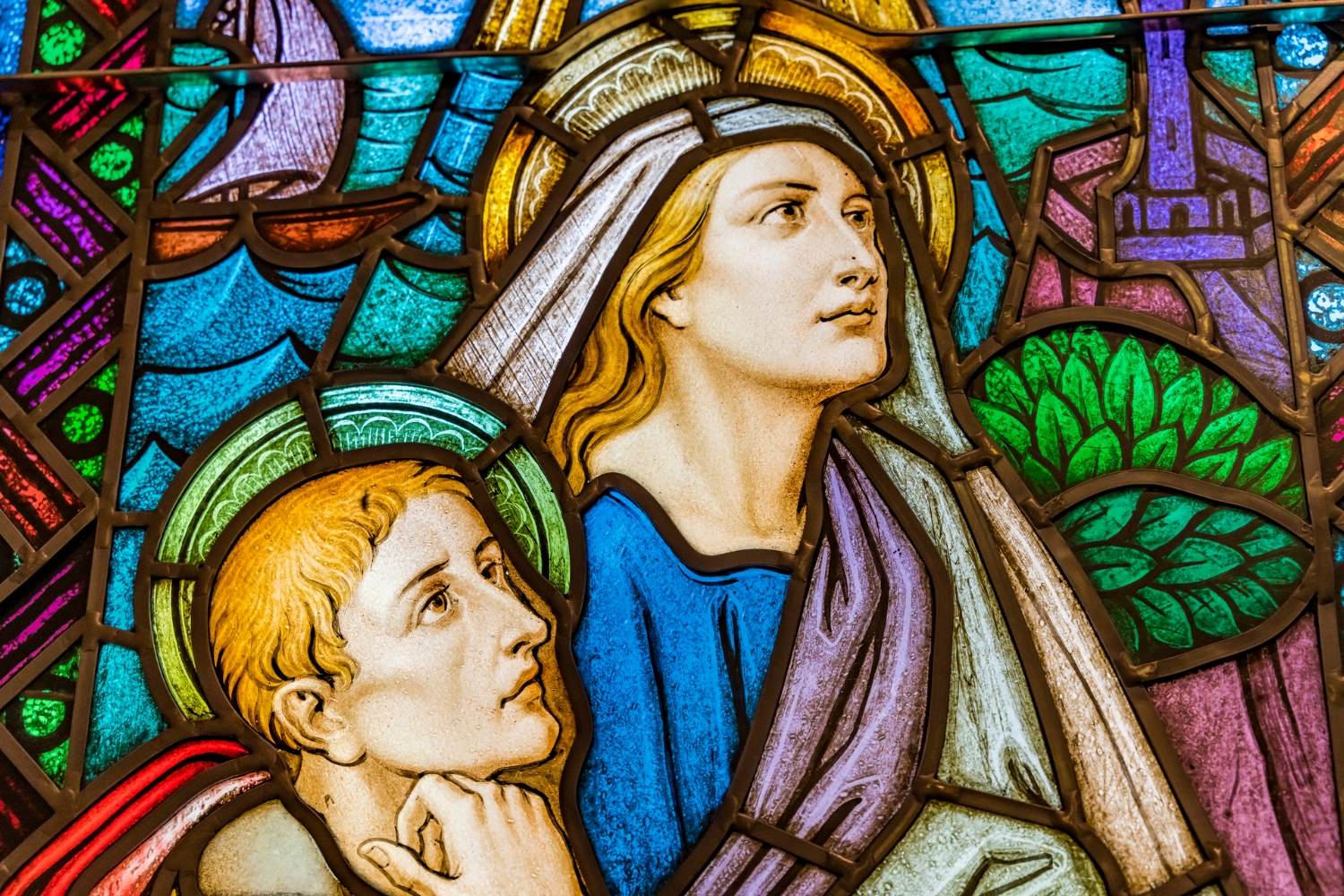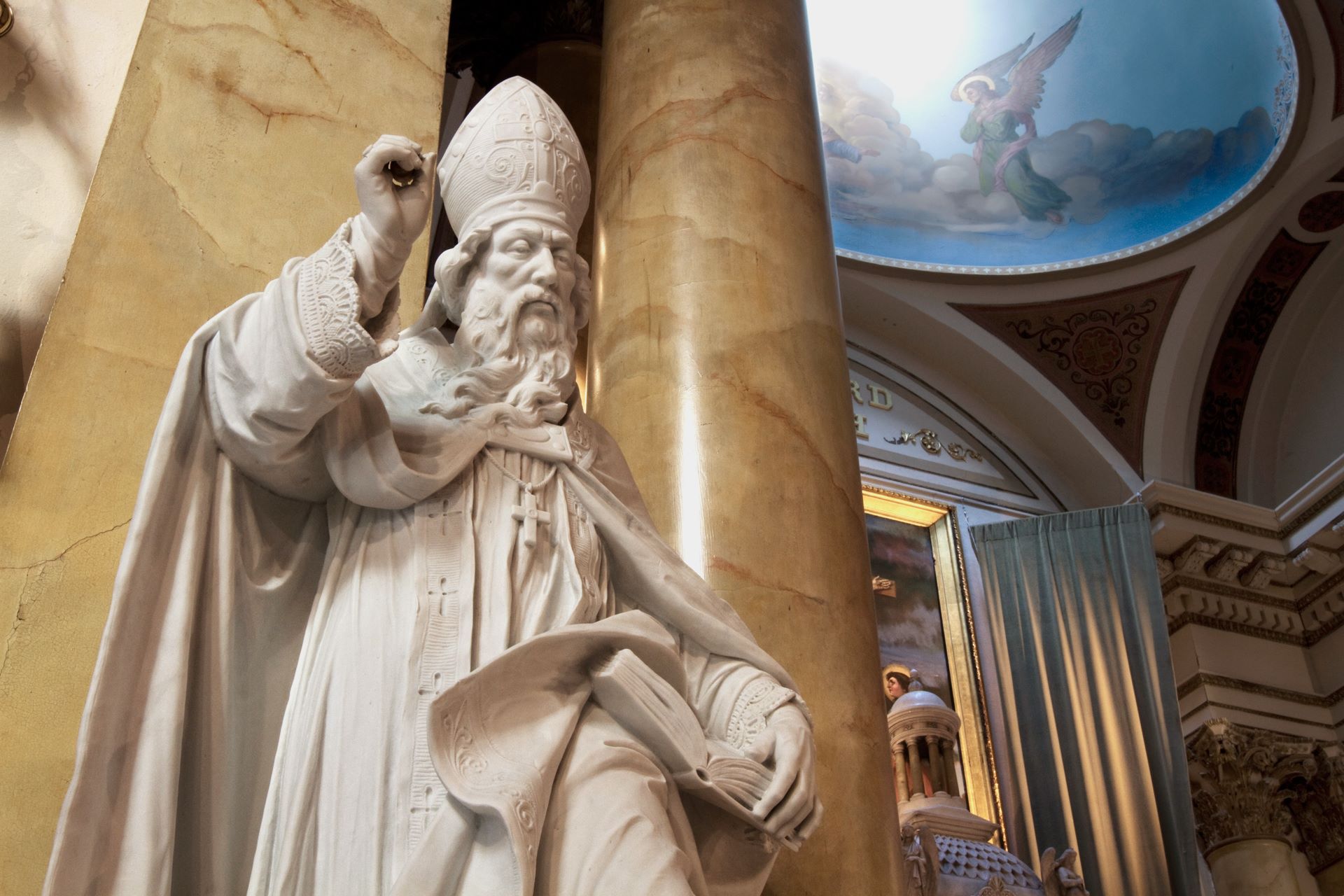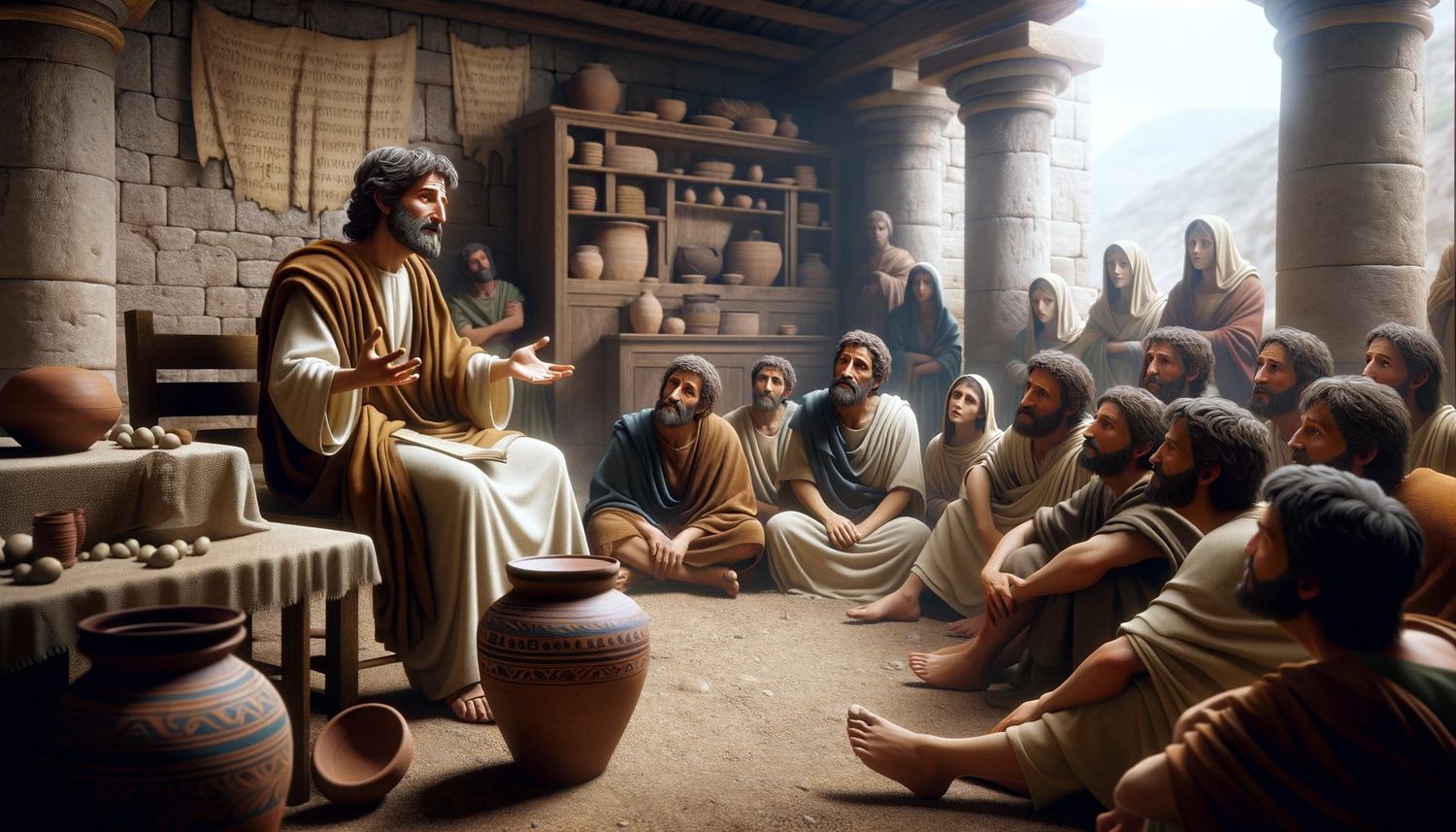Home>Bible Facts>How Did The Other Apostles Feel About Saint Paul


Bible Facts
How Did The Other Apostles Feel About Saint Paul
Published: February 19, 2024
Ericka Andersen, an editor at Christian.net, expertly merges digital strategy with content creation, focusing on faith and societal issues. Her communication skills enhance the platform's engaging narratives, fostering meaningful dialogue on belief's impact on society.
Discover the Bible facts about how the other apostles felt about Saint Paul and his influence on early Christianity. Explore their perspectives and insights.
(Many of the links in this article redirect to a specific reviewed product. Your purchase of these products through affiliate links helps to generate commission for Christian.net, at no extra cost. Learn more)
Table of Contents
Introduction
The relationship between Saint Paul and the other apostles is a topic that has intrigued scholars and theologians for centuries. Following Paul's dramatic conversion on the road to Damascus, his interactions with the other apostles and their reception of his teachings have been the subject of much speculation and debate. Understanding the dynamics between Paul and the other apostles provides valuable insights into the early Christian community and the spread of the gospel.
This article delves into the multifaceted perspectives and emotions that the other apostles may have harbored toward Paul. By examining historical accounts and biblical texts, we can gain a deeper understanding of the complexities inherent in the relationships among the early Christian leaders. The apostles' initial reactions to Paul's conversion, their interactions with him, their views on his teachings, and their enduring influence on his ministry shed light on the interconnectedness of the early Christian movement.
As we embark on this exploration, it is essential to approach the topic with an open mind and a willingness to appreciate the nuances of human relationships and the transformative power of faith. The interactions between Saint Paul and the other apostles offer a compelling narrative that transcends the boundaries of time and continues to resonate with believers and scholars alike. Let us journey into the intricate tapestry of early Christianity, where the convergence of diverse perspectives and personalities shaped the course of history and the spread of the gospel.
Read more: Why And How Did Paul The Apostle Die?
The Apostles' Initial Reactions to Paul's Conversion
The conversion of Saul of Tarsus, a fervent persecutor of Christians, into the apostle Paul was a pivotal event in the early Christian narrative. However, it is essential to explore how the other apostles initially responded to this profound transformation. Given Paul's notorious reputation as a persecutor of the early Christian community, it is plausible to imagine that the apostles might have harbored skepticism, apprehension, or even fear upon hearing about his conversion.
The apostles, who had been steadfastly spreading the teachings of Jesus Christ, may have initially struggled to reconcile Paul's sudden change of heart. The news of his conversion likely elicited a range of emotions, including disbelief and caution. After all, Paul had been complicit in the persecution and imprisonment of early Christians, and his abrupt shift in allegiance may have seemed too remarkable to be true.
Moreover, the apostles' initial reactions to Paul's conversion may have been influenced by the fear of deception or betrayal. Given the high stakes involved in their mission to propagate the gospel, the apostles would have been understandably cautious about embracing someone with Paul's contentious background. The potential for Paul to infiltrate their ranks under false pretenses might have been a legitimate concern, prompting the apostles to approach him with guarded skepticism.
Despite these initial reservations, it is conceivable that the apostles, guided by their unwavering faith and the teachings of Jesus, eventually extended grace and acceptance to Paul. The transformative power of Paul's encounter with the risen Christ, coupled with his fervent proclamation of the gospel, likely played a pivotal role in winning over the trust and support of the other apostles.
In essence, the apostles' initial reactions to Paul's conversion reflect the complexities of human emotions and the profound impact of transformative experiences. Their journey from skepticism and apprehension to acceptance and collaboration with Paul underscores the redemptive nature of faith and the capacity for individuals to undergo profound spiritual metamorphosis. This pivotal moment in early Christian history laid the foundation for the convergence of diverse perspectives and the collective mission to spread the gospel to the ends of the earth.
The Apostles' Interactions with Paul
The interactions between the apostles and Paul following his conversion are a testament to the transformative power of faith and the resilience of human relationships. Upon embracing his new identity as a follower of Christ, Paul sought to connect with the established leaders of the early Christian community. His interactions with the apostles, particularly Peter, James, and John, played a pivotal role in shaping the trajectory of early Christianity.
Paul's initial interactions with the apostles were marked by a delicate balance of humility and conviction. Recognizing the significance of aligning his teachings with the foundational message of Jesus Christ, Paul sought validation and guidance from the apostles. His visit to Jerusalem, where he met with Peter and James, exemplified his willingness to engage in meaningful dialogue and seek unity within the burgeoning Christian movement.
The apostles' interactions with Paul were characterized by a gradual process of mutual understanding and collaboration. While Paul remained steadfast in his mission to preach the gospel to the Gentiles, he acknowledged the authority and influence of the original apostles. This acknowledgment was crucial in fostering a sense of unity and shared purpose within the diverse tapestry of early Christian communities.
Furthermore, the apostles' interactions with Paul extended beyond mere dialogue and cordiality. Their collective efforts to navigate the complexities of cultural and religious diversity within the early Christian congregations underscored the inclusive and adaptive nature of their interactions. The apostles' willingness to engage with Paul in addressing doctrinal and practical challenges reflected their commitment to upholding the core tenets of the Christian faith while embracing the diverse expressions of belief and practice.
In essence, the apostles' interactions with Paul exemplify the intricate dynamics of leadership, humility, and collaboration within the early Christian community. The convergence of diverse perspectives and the collective pursuit of a shared mission underscored the resilience and adaptability of the apostolic circle. Their interactions with Paul not only shaped the trajectory of early Christianity but also set a precedent for embracing inclusivity and unity amidst the rich tapestry of human experiences and beliefs.
The Apostles' Views on Paul's Teachings
The apostles' perspectives on Paul's teachings offer profound insights into the evolving landscape of early Christian theology and the diverse expressions of faith within the burgeoning Christian communities. As Paul fervently embarked on his mission to spread the gospel to the Gentiles, his teachings and theological interpretations inevitably intersected with the foundational doctrines upheld by the original apostles.
The apostles, who had been entrusted with preserving the teachings of Jesus Christ and nurturing the early Christian congregations, would have scrutinized Paul's teachings with discerning eyes. Given the diverse cultural and religious backgrounds of the early Christian converts, the apostles' views on Paul's teachings likely reflected a nuanced balance of affirmation, discernment, and constructive engagement.
While the apostles upheld the core teachings of Jesus Christ, they also recognized the transformative power of Paul's theological insights, particularly his emphasis on the universal scope of salvation and the inclusion of the Gentiles in the redemptive narrative. Paul's teachings on justification by faith, the role of the law, and the reconciling work of Christ would have resonated with the apostles, prompting them to discern the theological coherence and practical implications of his message within the context of the broader Christian community.
Moreover, the apostles' views on Paul's teachings were shaped by their commitment to preserving the unity and doctrinal integrity of the early Christian movement. As Paul navigated theological nuances and practical challenges in his epistles and missionary endeavors, the apostles would have engaged in constructive dialogue and discernment to ensure that his teachings aligned with the foundational message of Jesus Christ and contributed to the edification of the diverse Christian congregations.
The apostles' endorsement of Paul's teachings, coupled with their discerning engagement, underscores the dynamic interplay of theological diversity and unity within the early Christian community. Their willingness to embrace the transformative implications of Paul's teachings while upholding the foundational truths of the Christian faith exemplifies the adaptive and inclusive nature of early Christian theology.
In essence, the apostles' views on Paul's teachings reflect a harmonious blend of affirmation, discernment, and constructive engagement, underscoring the rich tapestry of theological exploration and unity within the early Christian movement.
The Apostles' Legacy and Influence on Paul's Ministry
The enduring legacy of the apostles and their profound influence on Paul's ministry reverberates throughout the annals of early Christian history. The apostles, who had been entrusted with the foundational teachings of Jesus Christ and the stewardship of the nascent Christian communities, left an indelible imprint on Paul's missionary endeavors and theological contributions.
The apostles' legacy of unwavering commitment to the gospel and the establishment of Christian congregations served as a guiding light for Paul as he navigated the complexities of diverse cultural landscapes and theological challenges. Their collective influence on Paul's ministry manifested in multifaceted ways, shaping the trajectory of his missionary journeys and the theological contours of his epistles.
The apostles' legacy of resilience and steadfast devotion to the gospel provided Paul with a compelling model of unwavering faith and sacrificial service. Their enduring impact on Paul's ministry is evident in his letters, where he often referenced the foundational teachings and exemplary lives of the apostles as sources of inspiration and guidance. The apostles' steadfastness in the face of persecution and their unwavering commitment to spreading the gospel served as a beacon of encouragement for Paul as he encountered trials and tribulations in his missionary endeavors.
Furthermore, the apostles' legacy of inclusivity and the embrace of diverse cultural expressions within the early Christian communities profoundly influenced Paul's approach to ministry. Their collective efforts to navigate the complexities of cultural diversity and doctrinal unity set a precedent for Paul's inclusive outreach to the Gentiles. The apostles' emphasis on fostering unity amidst diversity and their commitment to upholding the core tenets of the Christian faith resonated deeply with Paul's mission to proclaim the gospel to all nations.
Moreover, the apostles' enduring influence on Paul's ministry is exemplified in the collaborative spirit that characterized their interactions. The apostles' willingness to engage in constructive dialogue and discernment with Paul underscored the interconnectedness of their collective mission and the shared responsibility of nurturing the early Christian communities. Their legacy of collaborative leadership and mutual support provided a framework for Paul's engagement with diverse cultural contexts and theological challenges, shaping the inclusive and adaptive nature of his ministry.
In essence, the apostles' legacy and influence on Paul's ministry epitomize the interconnectedness of early Christian leadership and the enduring impact of collective stewardship on the spread of the gospel. Their unwavering commitment to the gospel, inclusive ethos, and collaborative spirit continue to resonate within the tapestry of Christian faith, serving as a testament to the transformative power of unity amidst diversity and the enduring legacy of the apostolic circle.



